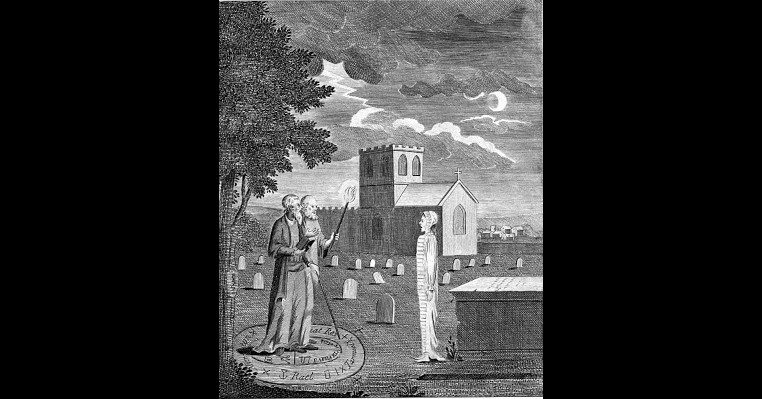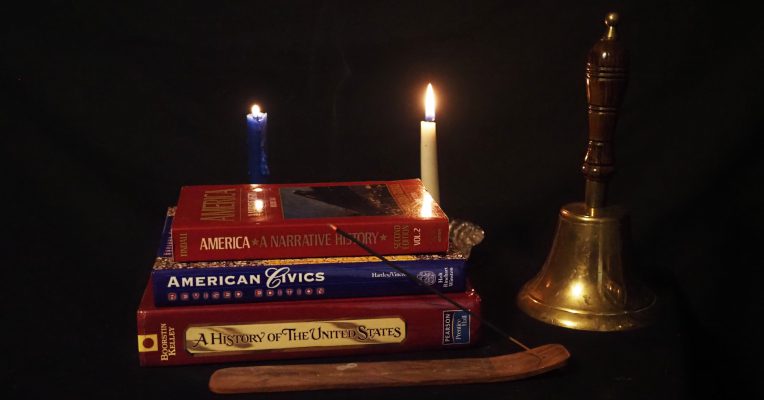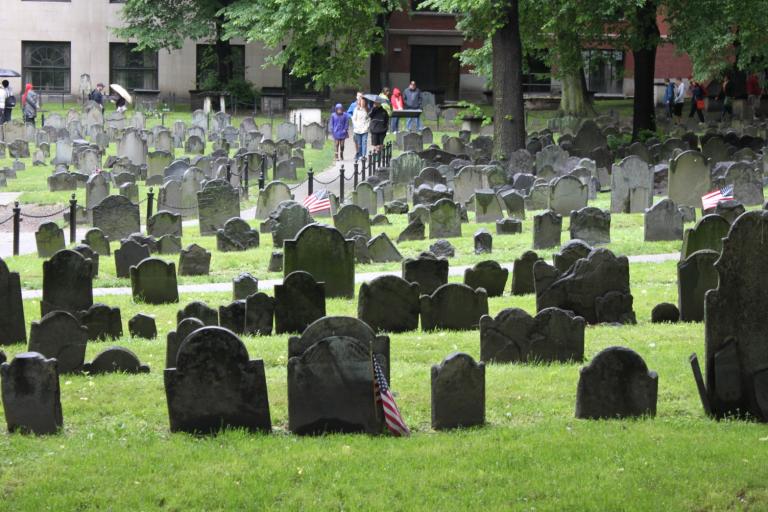The United States Supreme Court needs a necromancer and I would like to apply for the job.
The Thomas-Alito court (John Roberts is still Chief Justice, but he lost control of the court some time ago) has made it clear that the most important thing in interpreting the law is “original intent.” What, exactly, did James Madison mean when he wrote the first draft of the Constitution? What did John Bingham intend when he wrote the 14th Amendment, and how did the various legislators understand it when they voted to adopt it? Interpreting the principles of the Constitution in the context of contemporary society is no longer sufficient. We must understand the mindset of long-dead men from a long-gone era.
How do we do that? We have their writings, and the writings of those who influenced their thinking. People like Matthew Hale (1609 – 1676) who argued that there is no such thing as marital rape, and who hanged two women for witchcraft. Alito quoted him as a source in the Dobbs ruling.
But why bother with written records when you can hear from them directly?
Necromancy is the art of communicating with the dead. There are many ways to do this. There’s the classic Victorian séance. There are Ouija and other spirit boards. There’s scrying, Tarot cards, and other forms of divination.
And of course, there’s ceremonial magic. You’ve seen all the jokes and memes about “what to put in a summoning circle” – where you do think that idea came from? Except the magician stands inside the circle and summons the spirit into a triangle. Summoned spirits aren’t always happy to be summoned, so you have to take proper precautions to make sure they give you the information you want and they don’t cause any damage while they’re here.
There’s historical precedent for this, and precedent is very important to this court. Unless, of course, it’s a 50-year-old precedent they don’t like. In any case, John Dee served as an advisor to Queen Elizabeth I, and among his other work, he summoned spirits. We don’t know for sure that Dee summoned the spirits of the dead on behalf of the Queen (though he definitely cast astrological charts for her), but the practice is certainly part of history and tradition, and that seems to be what really matters these days.
Some of you may be skeptical that we can summon the Founding Fathers from the afterlife. I mean, we don’t know exactly where they are. I would say they’re all in Hell for owning slaves (41 of 56 signers of the Declaration of Independence owned slaves) and for perpetuating the institution of slavery, but I don’t believe in Hell. In cases like this I wish I did.
Where ever they are, they can be summoned with the right connections and with the proper technique. A copy of the laws they wrote, a campaign speech, and a few personal effects should be enough to establish a connection and bring them into this world for a short while.
And then we ask them what they meant, what they intended. But don’t be surprised if they look at us like we’re fools for trying to apply laws written in the age of muzzle-loaders to semi-automatic weapons.

Now, I’m not going to do this for free. I love my country, but I have to eat and pay the mortgage. Associate Justices make $265,000 a year, which is only a fraction of what they could make in a major law firm. That’s a lot more than I make, but if I have to move to Washington I’m going to need it all. They each get four law clerks to help with research and writing. Necromancy clerks have rather different qualifications, but the way the Court is moving I’m going to need at least four to keep up with all the research and ritual preparation.
But that’s a small price to pay for knowing the true intent of all these dead white men who wrote the Constitution and passed all these laws.
Or, you know, we could go back to interpreting the Constitution according the principles it articulates in the context of contemporary society. We could go back to assuming that fundamental rights belong to everyone and not just to the races and genders and classes that were in power in 1791 or in 1868.
We could banish “originalism” and “textualism” to the dustbin of history, and make it clear that “states’ rights” are always subordinate to the rights of living, breathing people.
We could expand the Supreme Court to 13 (one for every Federal district court) and set long-but-fixed terms that would facilitate judicial independence but also allow for orderly transitions and not allow one President to pack the court just because an inordinate number of deaths and retirements happened during their term.
Congress could stop its partisan posturing and pass a new voting rights act, and then encode Roe, Griswold, Lawrence, and Obergefell into federal law.
Or the Supreme Court can hire a necromancer to summon the Founding Fathers and ask them what they really intended.
I’m available.


















